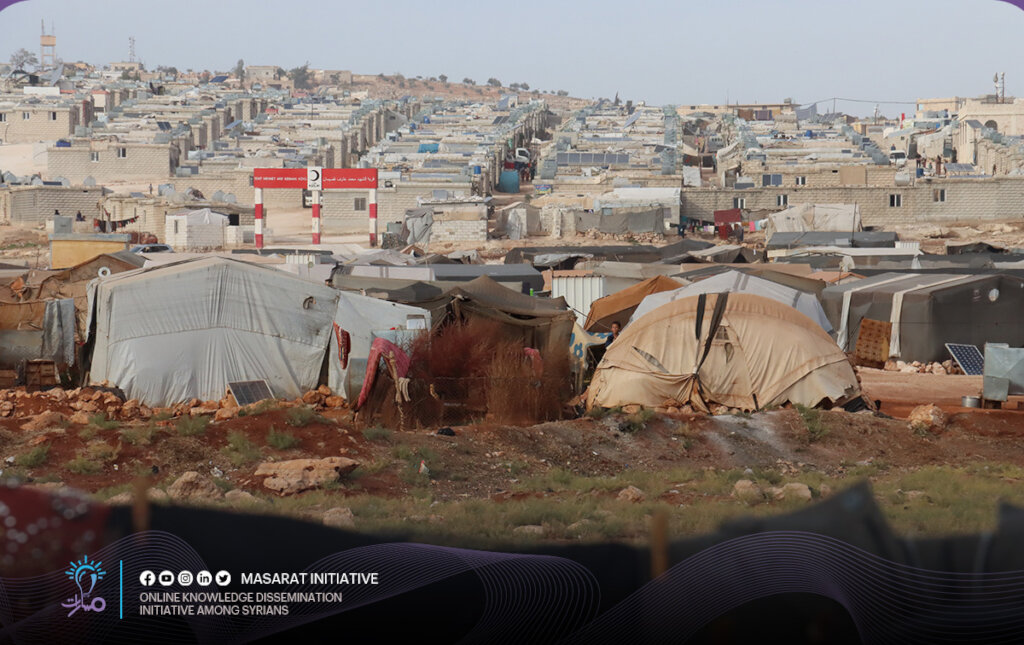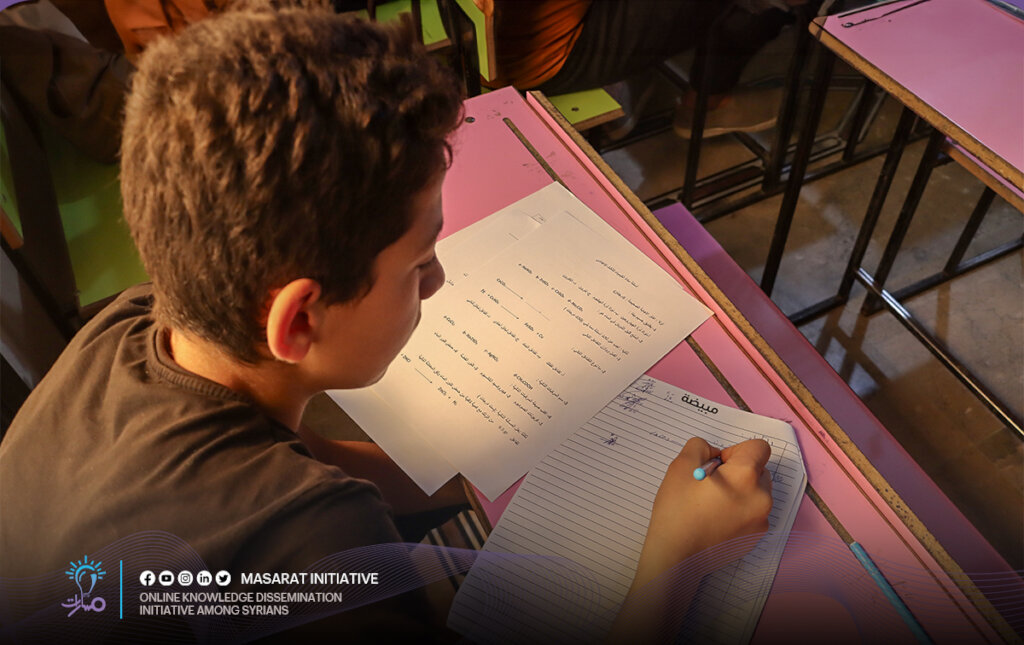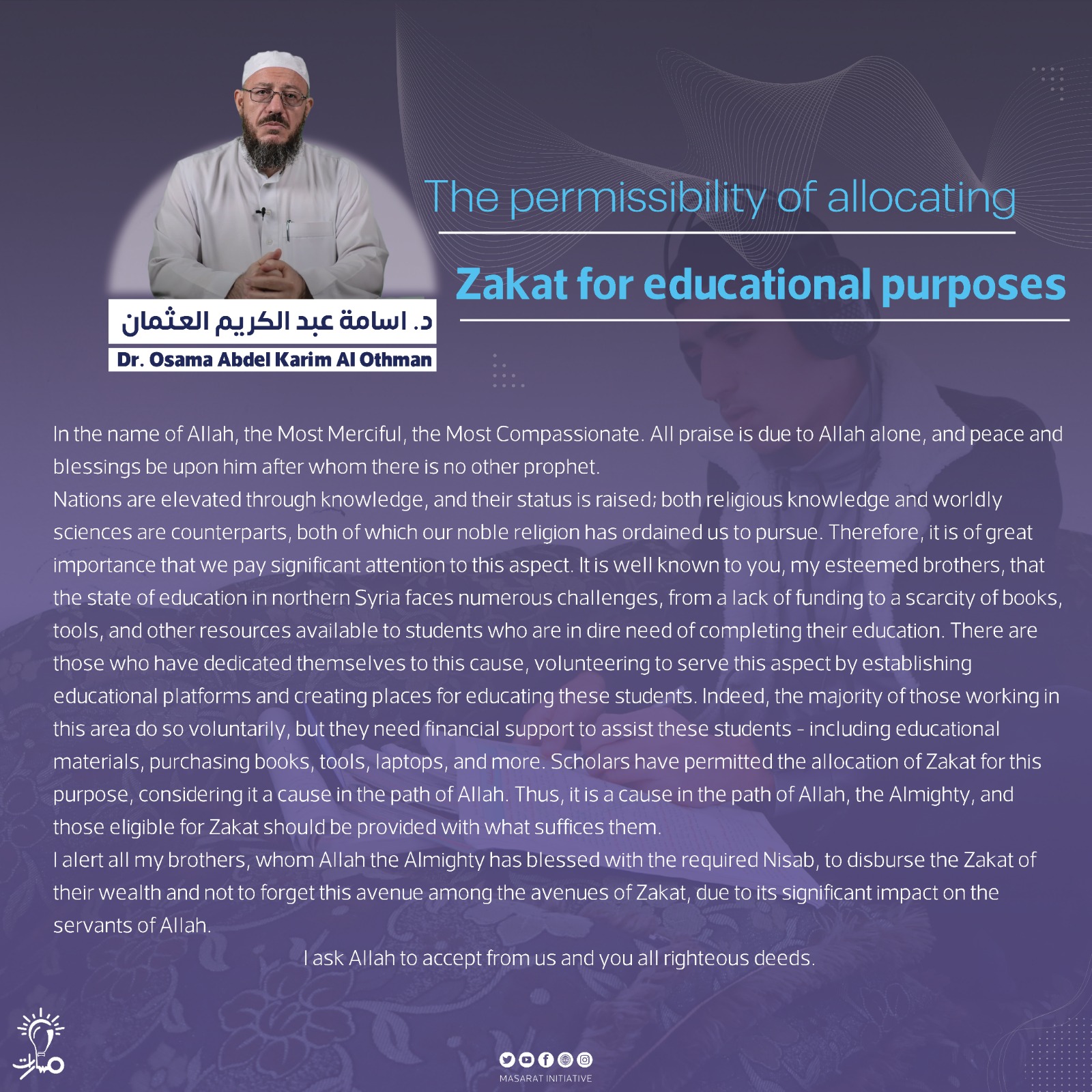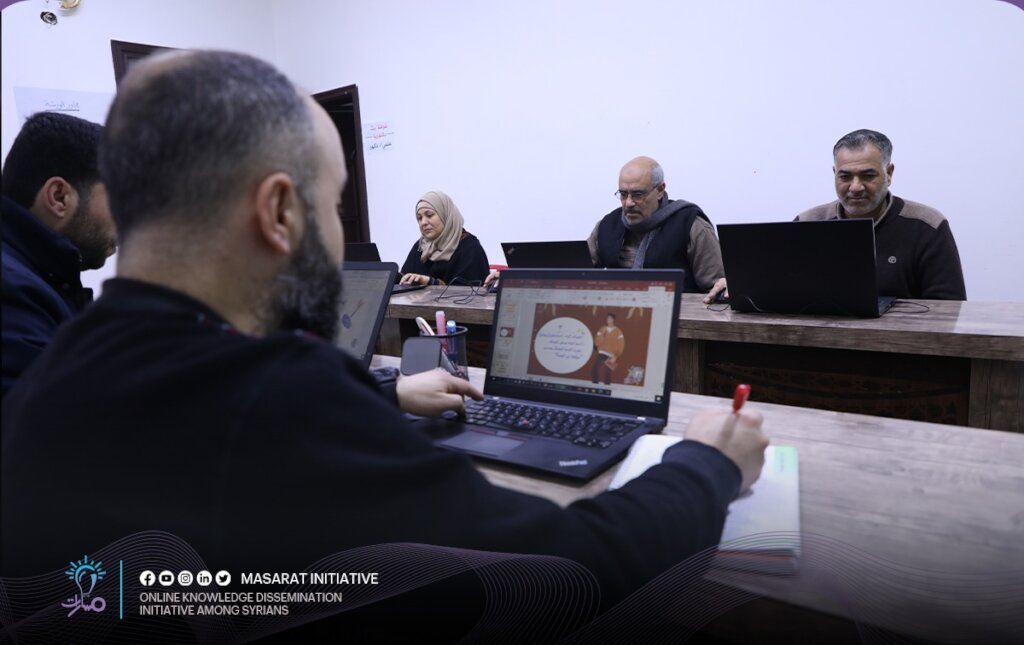Amid growing economic disparities and a deepening global poverty crisis, the Islamic financial system emerges as a model aimed at achieving social justice and economic balance. It relies on zakat as a mechanism for purifying wealth and redistributing it in a way that ensures it reaches its deserving recipients.
Where should zakat funds be spent, and who are its rightful recipients as determined by Islamic law? Our article will clarify these points, so stay with us for detailed insights.
What are the Avenues for Spending and Disbursing Zakat Funds in Islam?
Allah Almighty has specified the avenues for zakat spending and its deserving recipients in a detailed verse, saying: “Charities are for the poor, the needy, those employed to collect [zakat], for bringing hearts together [for Islam], for freeing captives [or slaves], for those in debt, in the cause of Allah, and for the [stranded] traveler – an obligation [imposed] by Allah. And Allah is Knowing and Wise.”
For further clarification, here’s a detailed explanation of these eight categories:
The Poor and The Needy
Both the poor and the needy share a need, but the poor are in more dire need, while the needy have little that does not fully suffice them. Scholars have emphasized the necessity of zakat covering their needs and those of their families for a full year.
Those Employed to Collect It
This refers to individuals tasked with collecting and distributing zakat funds, who are entitled to benefit from these funds as compensation for their efforts. Their share is determined by what suffices to cover their operational expenses, and if they are poor, they are given a share that ensures sufficiency for them and their families for a year.
To Attract Hearts
Interpretations of this category have varied among scholars, including non-Muslims hoped to embrace Islam, Muslims to strengthen their faith, and adversaries to prevent their harm.
For Freeing Captives
This category includes those seeking to free themselves from servitude through a deferred payment to their master, slaves bought for their freedom, and Muslim prisoners held by non-believers, with zakat funds used to liberate them.
The Debt-Ridden
Zakat spending here encompasses two scenarios as seen by scholars: firstly, someone who expends their wealth to reconcile between conflicting tribes and is compensated from zakat funds for their expenditure; and secondly, those burdened with debt they cannot repay, assisted to meet their needs and settle their debts.
In the Cause of Allah
This includes two aspects: supporting jihad in Allah’s cause, allocating a portion of zakat for the needs of warriors, and supporting students devoted to religious and worldly studies, as is the case with the Pathways educational initiative targeting the education of displaced Syrian students.
The Wayfarer
This refers to a traveler who has run out of funds, given zakat to return to their homeland, even if they possess wealth back home.
Thus, we have explained how zakat funds are distributed and the categories entitled to them according to Islamic law. Among these categories, the student holds a status equivalent to that fighting in Allah’s cause. Believing in the importance of education and its accessibility to all students, Pathways invites you to contribute from your zakat funds to secure more educational opportunities and improve them for the broadest possible segment.
Is it permissible to pay Zakat to hospitals and their construction?
Allah Almighty has specified the channels for Zakat distribution. Therefore, it is not permissible to use Zakat funds for building a hospital unless it is for treating the poor who cannot afford medical treatment or medicine.
Is it permissible to donate and give Zakat for the treatment of a patient?
A patient unable to afford medication costs is eligible for Zakat. Sheikh Ibn Uthaymeen emphasized the importance of fulfilling medical needs through Zakat due to its critical role in alleviating hardship.
Is it permissible to allocate Zakat funds for the sponsorship of an orphan?
Yes, but only if the orphan is among those entitled to Zakat, such as the poor, the needy, etc.
Is it permissible to give Zakat to a student of knowledge?
Scholars, including Hanafi, Shafi’i, and Hanbali jurists, agree on the permissibility of allocating Zakat to students seeking beneficial knowledge for their religion and worldly life.
Is it permissible to dig a well using Zakat funds?
It is not permissible to use Zakat funds for digging wells, building mosques, or hospitals because Zakat’s primary purpose is to fulfill the needs of the poor.
Is it permissible to give Zakat to an orphanage?
Providing care for neglected or poor young orphans is a legitimate reason to direct Zakat towards orphanages, emphasizing support for these vulnerable groups.
Is it permissible to give Zakat to charitable organizations?
It is permissible to give Zakat to charitable organizations, provided it is ensured that they direct aid to the rightful recipients. It is crucial to verify this before distributing Zakat funds to them.
Is it permissible to spend Zakat on sanitation workers?
Yes, if they do not have sufficient means to meet their personal needs, including food, drink, and clothing.
What is the best place and purpose for disbursing Zakat funds?
The Holy Quran specifies the eligible categories for Zakat, highlighting the importance of directing it towards the needy and poor as a priority to alleviate their hardship.
How can you donate your Zakat to support youth in Syria?
At Masarat Initiative, we offer free education to Syrian students, especially those residing in IDP camps, orphans, persons with disabilities, and those who have been out of school for many years. Our mission is to provide comprehensive free education that includes school education, student activities, academic advising, and vocational training.
This project is a fertile ground for your Zakat and donations, as education opens new horizons for these students, offering them a chance to build a better future. We invite you to partner with us and contribute to brightening the future of those in dire need of your support through your Zakat and donations.
Frequently Asked Questions About Disbursing Zakat Funds
To Whom is Zakat Given Among Relatives?
Zakat is given to the neediest relatives, acting as both charity and a means of maintaining family ties.
Who are the Eight Entitled to Zakat?
The poor, the needy, those employed to collect it, to attract hearts, for freeing captives, the debt-ridden, in the cause of Allah, and the wayfarer.
Can I Give My Sister from Zakat Funds?
If she is poor and eligible for zakat, it is permissible to disburse zakat funds to her.
Is It Permissible to Distribute Zakat Funds to Siblings?
Yes, it is permissible to give zakat funds to siblings if they are not obligated to be financially supported by you.
Can Zakat Be Paid Without Mentioning It's Zakat?
There is no need to inform the beneficiary that the aid is from zakat funds, provided their eligibility has been verified according to Sharia conditions.
Is It Permissible to Distribute Zakat to More Than One Person?
It is preferable to provide enough aid to fulfill a poor person’s needs. If the amount suffices for more than one person, it can be distributed among several eligible recipients. If the amount only suffices for one individual, this is also acceptable.









